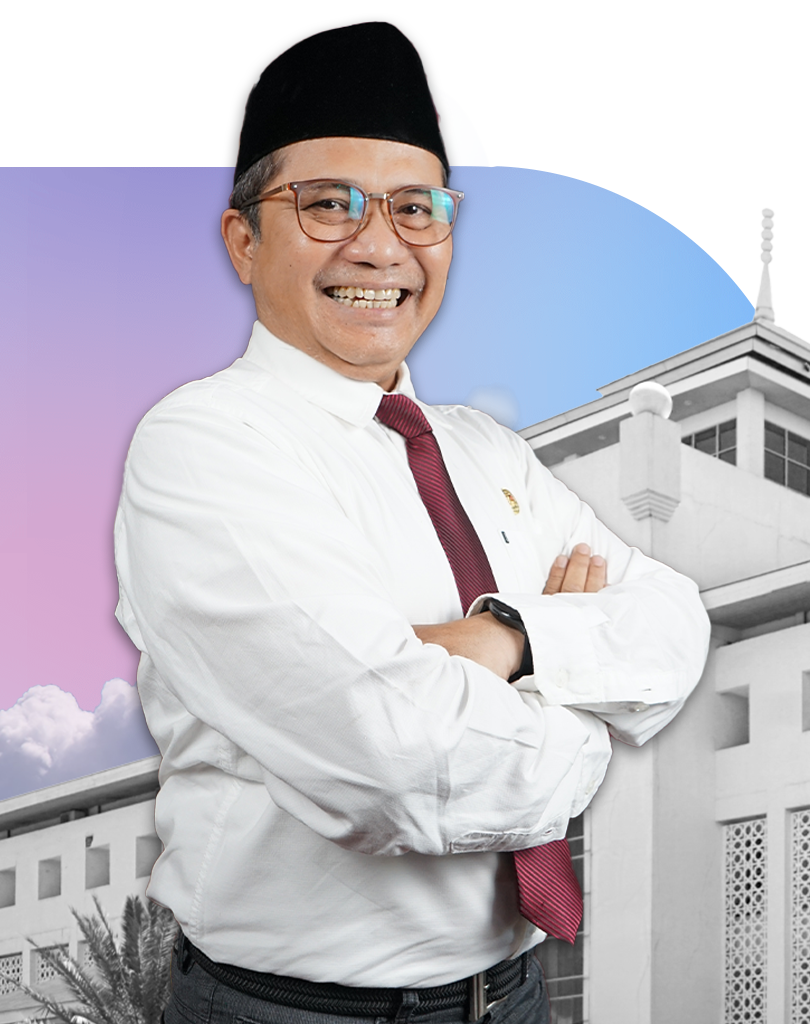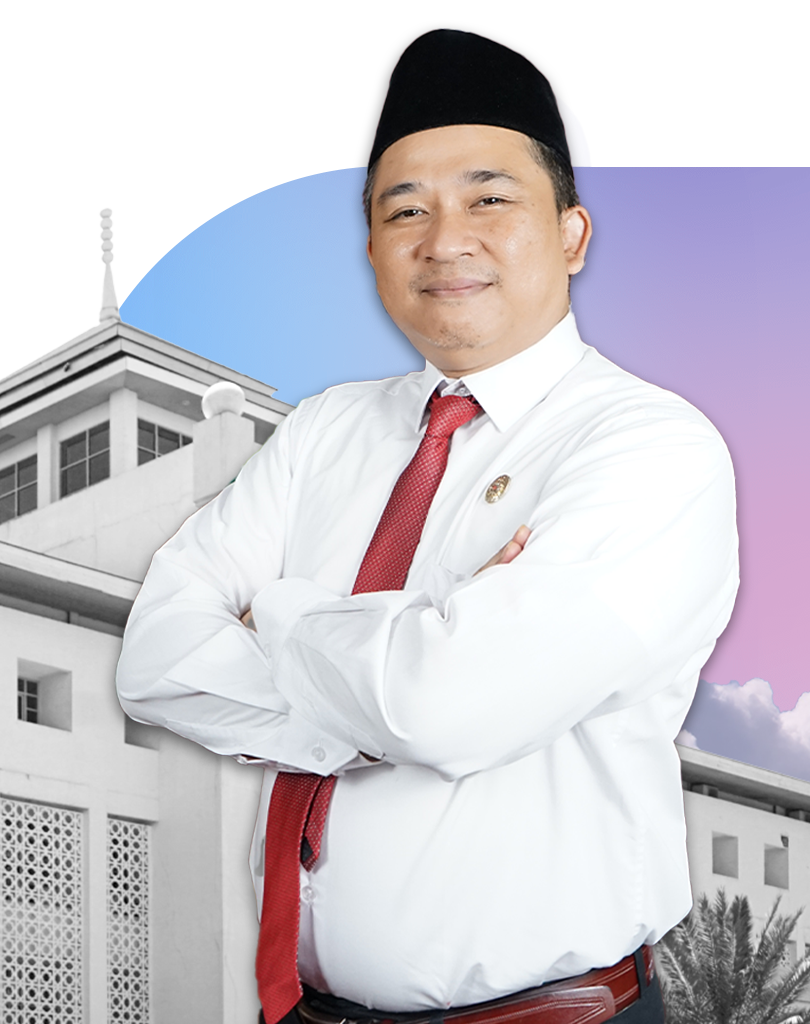|
No
|
Mata Kuliah
|
Bahan Kajian
|
BBK
|
SKS
|
|
I
|
Konsentrasi:
Studi Agama-Agama
|
|
|
3
|
|
1
|
Teologi Masyarakat Kontemporer
|
Konsep teologi diberbagai teks ajaran agama dan teori ilmu-ilmu sosial
|
|
3
|
|
2
|
Penafsiran Kitab Suci
|
Kitab suci dan teks ajaran/doktrin di berbagai agama-agama
|
|
3
|
|
3
|
Metode Penelitian Agama
|
Dasar-dasar berfikir logis, ilmiah & metodologis dalam studi agama
|
|
3
|
|
4
|
Pendekatan Ilmu-Ilmu Sosial Terhadap Agama
|
Pendekatan teori ilmu sosial untuk mengkaji agama
|
|
3
|
|
5
|
Advance Study of Living Religions
|
Pendekatan teori ilmu sosial untuk mengkaji agama
|
|
3
|
|
6
|
Gerakan Sosial Keagamaan
|
Pendekatan teori ilmu sosial untuk mengkaji agama
|
|
3
|
|
7
|
Agama, Negara dan Civil Society
|
Pendekatan teori ilmu sosial untuk mengkaji agama
|
|
3
|
|
8
|
Metodologi Studi Agama
|
Dasar-dasar berfikir logis, ilmiah & metodologis
|
|
2
|
|
9
|
Indigenous Religions in Indonesia
|
Pendekatan teori ilmu sosial untuk mempelajari agama
|
|
3
|
|
10
|
Pendidikan Agama: Pluralisme, Multikulturalism dan Resolusi Konflik
|
Teori dan model pluralism, multikulturalism & di Indonesia dan berbagai belahan di dunia
|
|
3
|
|
11
|
Agama dan Politik Identitas
|
Pendekatan teori ilmu sosial untuk mengkaji agama
|
|
3
|
|
12
|
The Dynamic of Religious Practices: Perspektif Ilmu Perbandingan Agama
|
Pendekatan teori ilmu sosial untuk mengkaji agama
|
|
3
|
|
13
|
Agama dan Isu-Isu Kontemporer
|
Pendekatan teori ilmu sosial untuk mengkaji agama
|
|
3
|
|
14
|
Penelitian Sosiologi, Antropologi dan Fenomenologi
|
Pendekatan teori ilmu sosial untuk mengkaji agama
|
|
3
|
|
15
|
Agama dan Pembangunan
|
Pendekatan teori ilmu sosial untuk mengkaji agama
|
|
2
|
|
16
|
Bimbingan Penulisan Disertasi
|
Teori-teori berbagai disiplin keilmuan dan metodologi penelitian
|
|
2
|
|
|
|
|
|
|
|
II
|
Konsentrasi:
Filsafat Agama
|
|
|
|
|
1
|
Teologi Masyarakat Kontemporer
|
Konsep teologi diberbagai teks ajaran agama dan teori ilmu-ilmu sosial
|
|
3
|
|
2
|
Penafsiran Kitab Suci
|
Kitab suci dan teks ajaran/doktrin di berbagai agama-agama
|
|
3
|
|
3
|
Metode Penelitian Agama
|
Dasar-dasar berfikir logis, ilmiah & metodologis dalam studi agama
|
|
3
|
|
4
|
Pendekatan Ilmu-Ilmu Sosial Terhadap Agama
|
Pendekatan teori ilmu sosial untuk mengkaji agama
|
|
3
|
|
5
|
Advance Study of Living Religions
|
Pendekatan teori ilmu sosial untuk mengkaji agama
|
|
3
|
|
6
|
Gerakan Sosial Keagamaan
|
Pendekatan teori ilmu sosial untuk mengkaji agama
|
|
3
|
|
7
|
Agama, Negara dan Civil Society
|
Pendekatan teori ilmu sosial untuk mengkaji agama
|
|
3
|
|
8
|
Agama dan Seni (Filsafat Estetika)
|
Pendekatan teori filsafat untuk mengkaji agama dan filsafat estetika
|
|
3
|
|
9
|
Indigenous Religions in Indonesia
|
Teori-teori dasar agama secara saintifik.
|
|
2
|
|
10
|
Mistisisme dan Spiritualisme dalam Agama-Agama
|
Teori-teori dasar agama secara saintifik.
|
|
3
|
|
11
|
Filsafat dan Kearifan Lokal
|
Teori-teori dasar tentang filsafat dan budaya
|
|
3
|
|
12
|
Agama dan Pembangunan
|
Pendekatan teori ilmu sosial untuk mengkaji agama
|
|
2
|
|
13
|
Agama dan Isu-Isu Kontemporer
|
Pendekatan teori ilmu sosial untuk mengkaji agama
|
|
3
|
|
14
|
Dialog Filsafat Barat dan Timur
|
Teori-teori dasar dan metodologi tentang filsafat Barat dan Timur
|
|
3
|
|
15
|
Metodologi Studi Filsafat Agama
|
Dasar-dasar berfikir filosofis, ilmiah & metodologis perspektif filsafat agama
|
|
3
|
|
16
|
Bimbingan Penulisan Disertasi
|
Teori-teori berbagai disiplin keilmuan dan metodologi penelitian
|
|
2
|
|
|
|
|
|
|
|
III
|
Konsentrasi:
Agama dan Media
|
|
|
|
|
1
|
Teologi Masyarakat Kontemporer
|
Konsep teologi diberbagai teks ajaran agama dan teori ilmu-ilmu sosial
|
|
3
|
|
2
|
Penafsiran Kitab Suci
|
Kitab suci dan teks ajaran/doktrin di berbagai agama-agama
|
|
3
|
|
3
|
Metode Penelitian Agama
|
Dasar-dasar berfikir logis, ilmiah & metodologis dalam studi agama
|
|
3
|
|
4
|
Pendekatan Ilmu-Ilmu Sosial Terhadap Agama
|
Pendekatan teori ilmu sosial untuk mempelajari agama
|
|
3
|
|
5
|
Advance Study of Living Religions
|
Pendekatan teori ilmu sosial untuk mempelajari agama
|
|
3
|
|
6
|
Gerakan Sosial Keagamaan
|
Pendekatan teori ilmu sosial untuk mengkaji agama
|
|
3
|
|
7
|
Sosiologi dan Antropologi Media
|
Pendekatan teori ilmu sosial untuk mengkaji agama dan media
|
|
3
|
|
8
|
Metodologi Studi Agama
|
Dasar-dasar berfikir logis, ilmiah & metodologis
|
|
2
|
|
9
|
Agama, Media dan Budaya Populer
|
Teori ilmu sosial untuk mengkaji agama dan media
|
|
3
|
|
10
|
Pendidkan Agama: Pluralisme, Multikulturalisme dan Resolusi Konflik
|
Teori dan model pluralism, multikulturalism & di Indonesia dan berbagai belahan di dunia
|
|
3
|
|
11
|
Semiotika Media
|
Teori ilmu media dan filsafat simbol
|
|
3
|
|
12
|
Media dan Politik Representatif
|
Teori ilmu media dan politik
|
|
3
|
|
13
|
Agama dan Isu-Isu Kontemporer
|
Pendekatan teori ilmu sosial untuk mengkaji agama
|
|
3
|
|
14
|
Komodifikasi Agama dalam Media
|
Pendekatan teori ilmu sosial untuk mengkaji agama dan media
|
|
3
|
|
15
|
Agama dan Pembangunan
|
Pendekatan teori ilmu sosial untuk mengkaji agama
|
|
2
|
|
16
|
Bimbingan Penulisan Disertasi
|
Teori-teori berbagai disiplin keilmuan dan metodologi penelitian
|
|
2
|
|
|
|
|
|
|
|
IV
|
Konsentrasi:
Ilmu Alquran dan Tafsir
|
|
|
|
|
1
|
Teologi Masyarakat Kontemporer
|
Konsep teologi diberbagai teks ajaran agama dan teori ilmu-ilmu sosial
|
|
3
|
|
2
|
Penafsiran Kitab Suci
|
Kitab suci dan teks ajaran/doktrin di berbagai agama-agama
|
|
3
|
|
3
|
Metode Penelitian Agama
|
Dasar-dasar berfikir logis, ilmiah & metodologis dalam studi agama
|
|
3
|
|
4
|
Pendekatan Ilmu-Ilmu Sosial Terhadap Agama
|
Pendekatan teori ilmu sosial untuk mempelajari agama
|
|
3
|
|
5
|
Advance Study of Living Religions
|
Pendekatan teori ilmu sosial untuk mempelajari agama
|
|
3
|
|
6
|
Tafsir Perbandingan
|
Teori ilmu perbandingan dalam tafsir Al quran
|
|
3
|
|
7
|
Studi Naskah Tafsir
|
Dasar-dasar berfikir metodologis dalam menafsirkan teks Al quran
|
|
3
|
|
8
|
Metodologi Studi Agama
|
Dasar-dasar berfikir logis, ilmiah & metodologis dalam memahami agama
|
|
3
|
|
9
|
Agama, Negara dan Civil Society
|
Pendekatan teori ilmu sosial untuk mengkaji agama
|
|
3
|
|
10
|
Pendidikan Agama: Pluralisme, Multikultarisme dan Resolusi Konflik
|
Pendekatan teori ilmu sosial untuk mengkaji agama
|
|
3
|
|
11
|
Tafsir Al Quran dan Isu Kontemporer
|
Sisi ekonomi dari religio tourisme
|
|
3
|
|
12
|
Metodologi Kritik Tafsir
|
Pendekatan teori ilmu sosial kritis untuk mengkaji teks Al quran
|
|
3
|
|
13
|
Pendekatan Multi Disiplin dalam Ilmu Tafsir
|
Dasar-dasar berfikir metodologis dalam menafsirkan teks Al quran
|
|
3
|
|
14
|
Gerakan Sosial Keagamaan
|
Pendekatan teori ilmu sosial untuk mengkaji agama
|
|
3
|
|
15
|
Agama dan Pembangunan
|
Pendekatan teori ilmu sosial untuk mengkaji agama
|
|
2
|
|
16
|
Bimbingan Penulisan Disertasi
|
Teori-teori berbagai disiplin keilmuan dan metodologi penelitian
|
|
2
|
|
|
|
|
|
|
|
V
|
Konsentrasi:
Agama dan Budaya
|
|
|
|
|
1
|
Teologi Masyarakat Kontemporer
|
Konsep teologi diberbagai teks ajaran agama dan teori ilmu-ilmu sosial
|
|
3
|
|
2
|
Penafsiran Kitab Suci
|
Kitab suci dan teks ajaran/doktrin di berbagai agama-agama
|
|
3
|
|
3
|
Metode Penelitian Agama
|
Dasar-dasar berfikir logis, ilmiah & metodologis dalam studi agama
|
|
3
|
|
4
|
Pendekatan Ilmu-Ilmu Sosial Terhadap Agama
|
Pendekatan teori ilmu sosial untuk mengkaji agama
|
|
3
|
|
5
|
Advance Study of Living Religions
|
Pendekatan teori ilmu sosial untuk mengkaji agama
|
|
3
|
|
6
|
Teori Ilmu Budaya
|
Pendekatan teori ilmu budaya untuk mengkaji agama
|
|
3
|
|
7
|
Metodologi Sejarah Kebudayaan Islam
|
Dasar-dasar berfikir ilmiah & metodologis dalam memahami agama dan budaya
|
|
3
|
|
8
|
Studi Naskah dan Kajian Tradisi Lisan
|
Teori kajian teks; hermeneutika dan metodologi penafsiran
|
|
3
|
|
9
|
Gerakan Sosial Keagamaan
|
Pendekatan teori ilmu sosial untuk mengkaji agama
|
|
3
|
|
10
|
Agama, Negara dan Civil Society
|
Pendekatan teori ilmu sosial untuk mengkaji agama
|
|
2
|
|
11
|
Kearifan Budaya Lokal
|
Teori-teori dasar tentang filsafat dan budaya
|
|
3
|
|
12
|
Studi Sejarah Kawasan Kebudayaan Islam
|
Pendekatan teori ilmu sosial humaniora untuk mengkaji agama
|
|
3
|
|
13
|
Agama dan Isu-Isu Kontemporer
|
Pendekatan teori ilmu sosial untuk mengkaji agama
|
|
3
|
|
14
|
Penelitian Sosiologi, Antropologi dan Fenomenologi
|
Pendekatan teori ilmu sosial untuk mengkaji agama
|
|
3
|
|
15
|
Pendidikan Agama: Pluralisme, Multikulturalisme dan Resolusi Konflik
|
Pendekatan teori ilmu sosial untuk mengkaji agama
|
|
2
|
|
16
|
Bimbingan Penulisan Disertasi
|
Teori-teori berbagai disiplin keilmuan dan metodologi penelitian
|
|
2
|
|
|
|
|
|
|
|
VI
|
Konsentrasi:
Agama dan Politik
|
|
|
|
|
1
|
Teologi Masyarakat Kontemporer
|
Konsep teologi diberbagai teks ajaran agama dan teori ilmu-ilmu sosial
|
|
3
|
|
2
|
Penafsiran Kitab Suci
|
Kitab suci dan teks ajaran/doktrin di berbagai agama-agama
|
|
3
|
|
3
|
Metode Penelitian Agama
|
Dasar-dasar berfikir logis, ilmiah & metodologis
|
|
3
|
|
4
|
Pendekatan Ilmu-Ilmu Sosial Terhadap Agama
|
Pendekatan teori ilmu sosial untuk mengkaji agama
|
|
3
|
|
5
|
Advance Study of Living Religions
|
Pendekatan teori ilmu sosial untuk mengkaji agama
|
|
3
|
|
6
|
Agama, Negara, dan Civil Society
|
Pendekatan teori ilmu sosial untuk mengkaji agama
|
|
2
|
|
7
|
Agama dan Sistem Kenegaraan
|
Pendekatan teori ilmu sosial untuk mengkaji agama
|
|
3
|
|
8
|
Agama, Institusi dan Partisipasi Politik
|
Pendekatan teori ilmu sosial untuk mengkaji agama
|
|
3
|
|
9
|
Gerakan Sosial Keagamaan
|
Pendekatan teori ilmu sosial untuk mengkaji agama
|
|
3
|
|
10
|
Penelitian Sosiologi, Antropologi dan Fenomenologi
|
Pendekatan teori metodilmu sosial untuk mengkaji agama
|
|
3
|
|
11
|
Agama dan Teori Politik
|
Pendekatan teori ilmu sosial untuk mengkaji agama
|
|
3
|
|
12
|
Agama dan Politik di Indonesia
|
Pendekatan teori ilmu sosial untuk mengkaji agama
|
|
3
|
|
13
|
Agama dan Isu-Isu Kontemporer
|
Pendekatan teori ilmu sosial untuk mengkaji agama
|
|
3
|
|
14
|
Penelitian Sosiologi, Antropologi dan Fenomenologi
|
Pendekatan teori ilmu sosial untuk mengkaji agama
|
|
3
|
|
15
|
Pendidikan Agama: Pluralisme, Multikulturalisme dan Resolusi Konflik
|
Pendekatan teori ilmu sosial untuk mengkaji agama
|
|
2
|
|
16
|
Bimbingan Penulisan Disertasi
|
Teori-teori berbagai disiplin keilmuan dan metodologi penelitian
|
|
2
|


